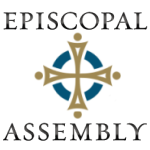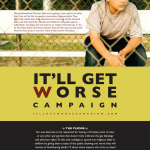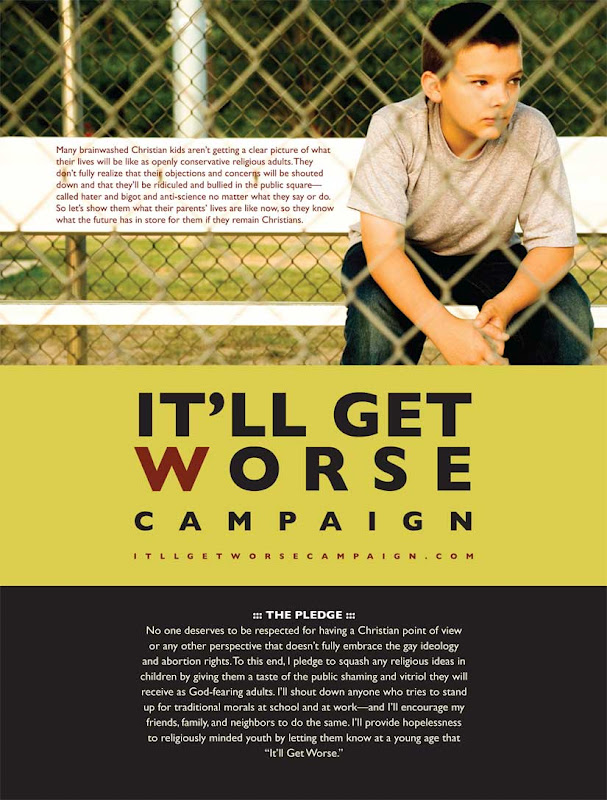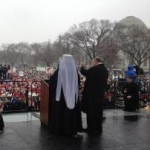Deprecated: trim(): Passing null to parameter #1 ($string) of type string is deprecated in
/home/aoiusa/public_html/wp-content/plugins/sexybookmarks/public.php on line
388
Deprecated: trim(): Passing null to parameter #1 ($string) of type string is deprecated in
/home/aoiusa/public_html/wp-content/plugins/sexybookmarks/public.php on line
394
Deprecated: trim(): Passing null to parameter #1 ($string) of type string is deprecated in
/home/aoiusa/public_html/wp-content/plugins/sexybookmarks/public.php on line
400
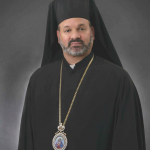 Below is the address given by Bishop Demetrios of Mokissos at the Pan-Orthodox Sanctity of Life Vespers held in Chicago on January 22, 2012. To his credit, Bp. Demetrios has been unequivocal in his support of the sanctity of unborn life, including participation in the March for Life in Washington, DC four or five years ago.
Below is the address given by Bishop Demetrios of Mokissos at the Pan-Orthodox Sanctity of Life Vespers held in Chicago on January 22, 2012. To his credit, Bp. Demetrios has been unequivocal in his support of the sanctity of unborn life, including participation in the March for Life in Washington, DC four or five years ago.
Bp. Demetrios is also opposed to the death penalty and spoke about that as well. Thankfully he avoids the politically correct shibboleths. He came to his position when counseling a death-row inmate who was subsequently executed. His argument that the application of the penalty can be arbitrary is compelling (I have deep misgivings about capital punishment for the same reason), but the morality of capital punishment remains an issue about which reasonable people can reasonably disagree. I’ll leave the rest for the discussion.
Source: Greek Orthodox Metropolis | His Grace Bishop Demetrios of Mokissos
His Eminence Bishop Demetrios of Mokissos was invited by the Orthodoxx Christian Clergy Association of Greater Chicago to give the keynote address at the 2012 Pan-Orthodox Vespers Service on January 22, 2012. In a deeply felt address, His Grace advocated for the sanctity of all life, even in those of whom we believe we can discern nothing good whatsoever. He reminded those present that Christ demands this of those who wish to bear his name – who call themselves Christians – and that we as His faithful servants have been called to follow His example of self-less love towards all.
Photographs of the event can be found in the Greek Orthodox Metropolis Photo Gallery.
Orthodox Christian Tradition, Social Justice and the Sanctity of Life
Offered by Bishop Demetrios of Mokissos
January 22, 2012
A recent report on FOXNews after Christmas focused on the life of a young Palestinian woman living in Gaza under the Palestinian Authority. She was studying at university to be a journalist and, unlike most residents of Gaza who live in relative poverty; she was a member of a comparatively affluent family who owned a retail store. What made her story so interesting was the fact that she was recently released from an Israeli prison along with hundreds of others in exchange for a single Israeli soldier being held captive by Hamas. She was imprisoned because she had attempted to detonate an explosive vest she was wearing at an Israeli checkpoint but the explosives failed to detonate. Now, back at school and studying to be a journalist, she calmly tells her interviewer that she is awaiting the opportunity to repeat her suicide mission, looking forward to the day she can kill her enemy and enjoy martyrdom.
In a recent documentary on Cook Country Prison, a young adult’s numerous scars from gunshot wounds are revealed as the young man admits that he simply does what he needs to do until the day he dies: “That’s just the way it goes.” With nothing to live for, he has nothing to lose; when his time comes, he admits, it will not be “any big loss.”
A recent article in the Greek Star, a local Greek-American publication, written by John Vlahakis, implicitly suggests abortion as the appropriate means to control world population now that seven billion people inhabit our planet, straining our resources and affecting our shared environment.
And just as recently, the introduction of a new version of the Air Jordan shoes, on the day before Christmas, resulted in several acts of lethal violence in the competition to gain footwear. Apparently the $200.00 shoes were equated with the value of a human life.
I begin with these descriptions that are only indirectly connected to my topic to illustrate an underlying issue of concern to all of us who have gathered at this Church of the Holy Apostles in the interest of the apostolic proclamation of the Gospel, the proclamation of eternal life, sacred life, for which our Lord was born, ministered, taught, died, rose from the dead, ascended into Heaven and sent to his disciples the Holy Spirit.
The underlying issue is the degradation of life’s sanctity exhibited in some form by all these examples: from distorted religious fervor, from what is essentially philosophical nihilism, from political relativism, and economic priorities for our standard of living. All these examples, among a host of others each of us could probably recall, subordinate the gift of life to other concerns. Interestingly, except for religious zealots of the world, very few propagators of what has rightly been called the culture of death commit suicide; those who espouse—in some form or another—the value of death are usually unwilling to die themselves. They do not, however, object to others dying: the undesired enemy, the unwanted or inconvenient preborn, the criminal, persons who live far away and who do not look, talk, or think like we do. This is, of course, hypocrisy.
One writer recently defined hypocrisy as, “the art of affecting qualities for the purpose of pretending to an undeserved virtue.” He add, “Imagine how frightful truth unvarnished would be” [Benjamin F. Martin, “France in 1938,” 2005]. Many of the issues that we, as Americans, have come to argue so passionately are not immune from our collective hypocrisy. Our political discourse has become immersed in it.
On the political left, they euphemistically talk about a woman’s right to choose when they really mean her right to kill her preborn child, and certainly not about the right to choose to abstain from those behaviors that result in the conception of an unwanted child. Self-control is a virtue if it involves killing someone else; it is not a virtue if it involves moral behavior: a frightful truth unvarnished. On the political right, they will condemn this “culture of death” and espouse a “right to life” while advocating for capital punishment in the name of public safety and denying that right to persons deemed criminal, no matter how corrupt the system, no matter how many persons have been proven to be erroneously convicted. Christian politicians of the right routinely invoke moral values as originating from our Creator, court the Evangelical Christian vote, and protest the current administration’s “war on religion,” but also, as at a recent debate, routinely espouse the supposedly evangelical ideal concerning our enemies: “Kill them” [Newt Gingrich and Rick Perry]. Truth unvarnished is indeed frightful.
The positions of both political parties, of course, can be reduced to self-concern and, indeed, selfishness. Political conservatives live up to the specific etymology of the word, serving themselves and their own interests; liberals have devolved, in many cases, to moral libertines. The two dominant political parties take diametrically opposed and un-Christian positions on two issues which, for Orthodox Christians, are inherently related since they both concern the execution of life.
Undoubtedly, most Americans who claim to support the so-called “right to life” or “sanctity of life” position do so with abortion in mind. Indeed, public opinion polls consistently show a majority of Americans are against the idea of elective abortion on demand. A far greater number assumedly would consider abortion “wrong,” but hesitate when making discussion turns to making it illegal due to largely hypothetical circumstances (such as rape, incest, or threats to the life of the mother). This is why so many “pro-choice” advocates so urgently resist the label “pro-abortion.” In our culture, it is so much more difficult to argue against free choice. In any case, with some important exceptions—such as the Terri Schiavo case in Florida back in early 2005—a broad coalition of activists and supporters has successfully managed to make “right to life” and “anti-abortion” almost synonymous.
Public opinion polls regarding another right-to-life and sanctity-of-life issue, capital punishment, are likewise consistently high in the United States. Politicians who publicly vow to put an end to abortion routinely espouse the necessity for the death penalty. Among Evangelical and Free-Church Protestants, the overwhelming majority is opposed to abortion, but more than half support the death penalty in some form, in some cases. In some regions of the country, support is far higher. Through casuistry and sophistry, it would appear that many persons, claiming to respect the sanctity of life on moral or religious grounds, reason that the preborn are “innocent,” while those who have been found “guilty beyond a reasonable doubt” have somehow either forfeited a right to live or, perhaps worse, they have decided that the general principle of life’s sanctity must be modified due to circumstances that are ugly, uncertain, or repugnant in and of themselves; it is as if disrespecting the right of others to live renders a convicted criminal’s life un-sacred in the eyes of God. There seems to be some type of cognitive, if not spiritual, dissonance at work in such minds.
I raise this point because when it comes to my main concern this evening, there is often an emotional, even visceral, reaction to the concept of capital punishment. The intentional causing of the death of the preborn as a matter of convenience—freely chosen murder—is always unjust and unrighteous (a distinction to which I will return). Yet there is often a sense that capital punishment is somehow necessary—however lamentable—for a just society. While not an exact analogy, the killing of Osama Bin Laden—a punishment for the horrific murders he ordered in our nation—aroused enthusiastic cheers across our land. Perhaps this can be rationalized as an act of war, so perhaps a better example would be an actual execution of a convicted criminal, by any comparison to others a true monster. A sigh of relief was heard around the world when Sadaam Hussein was hanged after his trial in Iraq, an outcome little in doubt at its outset for a man we have learned may not have had weapons of mass destruction, but either personally killed or ordered the deaths of literally tens if not hundreds of thousands of his own citizens.
There is a basic, well-ordered logic and rationale for the existence of capital punishment, at least as a response to some crimes. This is, in fact, part of its appeal—not to mention biblical warrant for it in the Old Testament. The United States is one of the few nations to retain it, though we would probably not like to be compared as a nation-state to the others such as China, Syria, Iran, and so forth. Nonetheless, in the context of retributive justice, there are times when capital punishment makes logical sense according to human reason. Opposition to the death penalty in all cases is rather incomprehensible and non-rational. And that is precisely why I am opposed to it.
Before proceeding, let me clarify one terminological distinction that I believe is quite important for Orthodox Christians. In the Bible, the Greek word δίκαιοςδικαιοσύνη and its cognates, such as δικαιοσύνη, is often translated “just,” “justice,” and so forth, as in the description of Joseph the betrothed of Mary: “a just man.” The word can also be translated as “righteous.” Indeed, when Joseph is introduced to us as a “just” man, the application is paradoxical in the context of Joseph’s Jewish culture and piety. We are told that he resolved to “divorce” Mary quietly or discreetly when she was found to be pregnant during their betrothal before their actual marriage and “coming together.” Under the Law of Moses, “justice” would have been far stricter with Mary. Strictly, she should have been stoned to death (Deuteronomy 22:22-24) since there is no indication she was pregnant due to rape. As far as Joseph knew, this was a violation of the Law. Joseph was actually violating the law in seeking to avoid the harsh penalty for Mary’s condition which, of course, was an act of God in the Holy Spirit as he is informed in a dream. Yet the Evangelist, in noting that He is δίκαιος, actually shows Joseph was concerned about “righteousness,” not justice as defined in his culture. In other words, Joseph—and not the letter of the law—was right.
In our culture, justice is ideally “blind.” Equality under the law is a basic principle, and identical (or nearly-identical) crimes are punished—in theory—with identical punishments. Yet we can clearly understand that “justice” being blind sometimes gets the story wrong. Justice and truth do not always coincide in our Western culture, not even ideally. There is widespread agreement that justice does not concern “truth,” but rather certainty beyond a reasonable doubt. Serving justice does not mean serving the truth. Sometimes the two might coincide; at other times they do not; and certainly sometimes what is just is simply not right: it is clearly wrong. As an example, we can return to the so-called constitutional right of a woman to abort her preborn child: it may be no injustice in our society, but it is clearly wrong.
In an Orthodox Christian context, we serve the truth who is Jesus Christ. Our concern is not about justice in the normal, we might say “human,” sense of the word, but about being right and righteous. The concept of justice might be ambiguous in our culture, but being right—and righteous before, with and in God—is never ambiguous: either we are or we are not. Either we are on the mark and right, or “off the mark” which is exactly what the Greek word signifying “sin” means: ???????.
There can be no doubt that, even in a biblical sense, the imposition of capital punishment in some cases is just. The Law came through Moses, but originates in God. There can also be no doubt that in the same biblical sense it is always wrong, and even the authors of the Pentateuch presume this since death itself, in any form, is always wrong and contrary to the will of God for His creation. It is the result of sin. Of course, this is more explicit in the Christian scriptures and I will return to this thought later in my presentation. Let me return to the subject of capital punishment.
I have long been an advocate for the abolition of the death penalty. My active involvement began when it was made personal. Prior to my personal involvement, it was theoretical: while I was vaguely aware of the issue and was always opposed to it in principle, I confess that my views were largely shaped by the injustice of capital punishment.
By this I refer to the fact—one that was vividly demonstrated here in Illinois—that the ultimate penalty of death can be, and often has been, imposed on those who were later proven to be innocent of the crimes for which they were convicted. It goes against reason that those vindicated while on death row and subsequently released were the only examples of the miscarriage of justice: when a just sentence is simple wrong. We cannot know how many have been executed when actually innocent.
However, the injustice of our justice system continues beyond this. Rather than equal penalties for equal crimes, the death penalty is disproportionately imposed upon the poorest, darkest-skinned and most shoddily represented among us. Rather than saving the state an expense of life imprisonment, implementing the death penalty costs at least three times as much as the costs associated with sentencing a convicted criminal to life without possibility of parole. Rather than being a deterrent to crime, states with the death penalty actually have higher homicide and overall crime rates. Rather than providing victims or their families any timely sense of retribution, vengeance or closure, the condemned typically spend well over a decade awaiting execution during a complicated appeals process that often causes continued pain and anxiety for survivors.
The injustices of the system have all been proven beyond a reasonable doubt. They provide compelling reasons to abolish the death penalty, and this is why an Orthodox Christian clergyman such as myself was able to work with a broad coalition of persons and organizations to organize against the death penalty. During my presidency of the Illinois Coalition Against the Death Penalty, I worked with persons who often held very different religious or even moral views from the Church, and some were opposed to capital punishment for reasons unrelated to any specifically Christian moral principle, such as for economic reasons. Nonetheless, I became involved because I saw this as both an opportunity to work toward a new moral awakening in our nation, to work for the cause of righteousness and not simply social justice. But above all, I felt it imperative to do what I was able to save lives. In fact, one specific life.
I met the “notorious” Andrew Korkoraleis at the Pontiac Correctional Institution, just weeks before his scheduled execution. Although I had visited inmates before, this was the first time I was to meet with a death row inmate. After encountering the institutional and callous prison personnel as well as enduring a body search, I passed through several gates, which seemed to close out the world behind. I was then taken to a cold, concrete visiting room and was instructed sit in one of four chairs around a bare table. All of them were bolted to the floor.
Andrew, with his hands shackled together, was escorted to my table by a prison guard. Of course, I will not reveal the details of our discussion. However, I need you to know that instead of encountering a monster I found Andrew to be a person of great faith, who was at peace with himself as well as with his accusers.
For all the 17 years he had been imprisoned, Andrew had maintained his innocence. On the basis of that first visit, and many other direct experiences I had with Andrew, I firmly believe that he was indeed innocent of the crime for which he was ultimately killed. Notably, others convicted as accomplices in the same crime (the so-called Chicago Rippers) were either not executed due to subsequent events, or were not sentenced to death. In any case, I cannot communicate to you what it felt like to have bonded so deeply with a person who had spent all of his adult life imprisoned.
Nor can I describe what it felt like to have seen Christ face to face in prison, shackled, alone, with no family or friends. His only remaining family was his Church. His Greek Orthodox Church stood by his side as his family and galvanized the wider religious community in the face of the great social evil of capital punishment. We felt it incumbent upon ourselves to stand decisively for clemency for Andrew and to stand in opposition to the death penalty in general. Even though our pleas fell upon insensitive and even deaf political ears, we knew that we had to do what was Christ-like.
And we tried – with letters, with demonstrations; with all the moral authority we could bring to bear. We publicized the fact that not a single shred of physical or scientific evidence existed that tied Andrew to the crime for which he was to be executed – no fingerprints, no DNA, no eye witnesses. In fact the only evidence against him was a confession obtained by police that Andrew almost instantly recanted.
As the fatal day of his execution approached, we gathered many religious leaders in the Greek Orthodox Cathedral to offer the then-governor our collective wisdom and prayers in his struggle. Former Governor Ryan, as you know, had turned a deaf ear to the religious community in general, and in particular to the religious community of which Andrew Kokoraleis was a part.
On March 17, 1999, our brother-in-Christ Andrew was put to death by the state of Illinois. Two days later I returned home from a very emotionally draining and difficult day at my office and received an ominous letter in the mail. It was from Andrew. With great care I opened the envelope and read the enclosed card. I absorbed every word into my being. I took what Andrew told me to heart and I clearly heard his every word as a personal calling. Andrew’s correspondence gratefully asked and hoped that somehow by his execution others might be spared a similar fate and that all executions might be terminated. He thanked me for the support I had provided him and told me that we would certainly see each other again in the Kingdom of Heaven.
I live everyday with the prayer that Andrew’s dying wishes will be granted. As it happened, two weeks after Andrew’s state-sanctioned homicide, Former Governor Ryan indicated a reduced obstinacy toward the religious community by making a public appearance at a Prayer Breakfast. Later, as we know, he publicly announced he regretted the various decisions he made in regard to the implementation of the death penalty in Illinois and placed a moratorium on executions, although in theory it was temporary until reforms for “fairness” and to ensure “just” executions occur—in other words, so that innocents not be put to death mistakenly, as so many in Illinois almost were, and perhaps—as I believe—actually were. Of course, more recently, under Governor Quinn, the hopeless broken system has been finally abolished—at least for now. Of course, there is still work to be done. Indiana, Iowa and Missouri, three states in which our Holy Metropolis has parishes, still maintain the death penalty. Obviously other states do as well, as does our Federal government. Working for abolition requires a long-term commitment. But after the United States, we will continue on to eliminate it in all corners of our world.
It is one thing to be an advocate for the unjustly accused or convicted. There is a generally recognized nobility in such a struggle. It is another thing—more difficult—to be an advocate for the guilty. Inevitably, this is what those who work for the abolition of capital punishment are—in part. And in our society, there is usually only scorn for those who seek to prevent even the guilty from being put to death by the state.
In Orthodox sacred tradition, every human being is created in the image and likeness of God. We are each of us an icon, an image of Christ and a mirror to one another of God’s living presence in the world. No human being – no murderer, no governor who in essence flipped the switch, nor the citizens whom she or he represents – no one is a “monster.” And every human being, including Andrew and every other death row inmate, is of value and worth as a person. This is true even for those who seem most evil, and this is a mystery and perhaps the ultimate challenge of our Faith.
Saint Paul mentions in his letter to the Corinthians a “more excellent way,” the way of love. In the Bible and in theology, love is not a sentiment or feeling or emotion. It is a manner of existing. The Greek word in the New Testament for love ?????, literally derives from ?–ἄ-ἐγώ, “not me.” Thus, to love means to live in such a manner as to not be concerned with the self, but only with the one we love. Of course, the teaching of Jesus Christ is that we love everyone, and this without condition. It means to be concerned with the life of the one we love, and this of course precludes ending that life. Love is always an act of freedom, a choice we make: to love or not to love. And the New Testament is clear, that if we love, we love because God first loved us (1 John). In other words, the capacity to love—and we each have this capacity—comes from God.
But as an act of freedom, love brings us to a place that is really beyond our conventional sense of justice and our commonly shared social ethics (what we ought to do or not do) and system of law. Love is not about law and ethics, but is all about our ethos, our way of being in the world. The simple text of the Bible is that we should love our neighbor (and this really means everyone as the Parable of the Good Samaritan shows). But Jesus Christ takes this one step further: “as you did to the least of these, so you did to me.” And this means precisely that we must treat each and every human being as we would treat Christ. This sounds rather simple, but is in fact the most difficult of teachings. For if we truly love, there is nothing that we would not do for our beloved. And this moves us beyond what “ought to be” done. It moves us beyond categories of right and wrong into the realm of self-emptying for the sake of the other person. It is sacrifice of our life, plain and simple, for another—whoever that may be.
Obviously, such a calling, such a vocation and ethos is simply impossible to legislate and is, as Metropolitan John (Zizioulas) of Pergamon states in his recent publication, Communion and Otherness, “inapplicable in a justly, that is, morally, organized society. It would be inconceivable to regulate social life on such a basis [of unconditional love for our neighbor], for there would be no room for law and order” (Zizioulas). Love is not a law (an infringement on freedom) nor can it be “ordered.”
The prescriptions of the Sermon on the Mount, such as the one to turn the left cheek to someone who strikes you on the right (Mt 5:39) is certainly a far cry from our society’s sense of justice. The call to love our enemies in the Christian tradition is another example of an ethos that is largely inapplicable in the American justice system or, frankly, anywhere in the world. But then the problem, from an Orthodox Christian point of view, is the very idea that justice can be systematically administered in a manner that is “righteous,” a standard that means for us consonant with God’s unconditional, self-emptying and self-sacrificing love and example.
One may point out that I have been an activist for seeking to reform our system of justice. This is not because I believe that the system can be reformed in such a manner as to be consistent with this ethos of love. It cannot. We live in a society of laws, a society of systems, a society where justice requires the payment of debts, not the forgiveness of them (unless you have extremely good political relationships with the U.S. Congress). It is a society where the death penalty still exists because it does, in fact, hold a certain logic of it own, consistent with the lex talionis: an eye for an eye, a life for a life. It also, paradoxically, perhaps, appeals to feelings and sentiment of grief and anger.
Yet as a bishop of the Church of Jesus Christ, I fight against the injustice of capital punishment precisely because the Church cannot abandon or betray or distort the Gospel, and present to society at large an ethos different from that of Christ’s life. In the final analysis, the Church is in this world, but it is not of it (Jn 15:16). Despite the “way of the world,” the Church must persevere in converting the ethos of the world, and this we can only do with acts of love, one at a time.
And so at a very basic level, to change minds and hearts (and the meaning of the New Testament word we usually translate as “repent”, μετανοεῖτε, literally means to change one’s mind), to change minds we begin at a common denominator of language—those elements on which we can agree. These are the practical and moral (because there certainly is a right and wrong) aspects of the calls to abolish state-sanctioned murder of human beings created in the image and likeness of God. On these, all rational minds can agree (whether they will or not). From this point, what I have called our new moral awakening, we can move to the more excellent way, and for Christians this is always the way of love in Christ Jesus.
We will never be capable of healing all the hurts of the world, and fixing all the problems. We are actually told this. Yet to live together as a sign and icon of the Kingdom means to endure in this age and fight against, as Saint Paul so aptly phrases it, our final enemy, death.
The images I presented at the beginning are indicative that there is still a great need for the proclamation of the sanctity of life in all cases and all forms. Perhaps, unlike ancient times, the message of hope that we proclaim at every Pascha rises to a place above where most hearts and minds can comprehend the Good News of the Resurrection. The success of Saint Paul and the Church in ancient times was predicated on a certain cultural perspective of life and death, one that has largely changed in our contemporary, western, technological, scientific and largely urban setting. The Church cannot simply offer words of encouragement to a world immersed in death and corruption. We must be actively seeking to put into action the annihilation of death and the wages of death within our own broken world in an obvious and practical manner. I, and others, will continue advocating in ministries revolving around social justice, for if we can achieve some measure of justice we can move on to righteousness, the “more excellent way.” By this, we can transform our culture from one where the execution of life—abortion, euthanasia, capital punishment—is commonplace to one where the goal is, indeed, the execution of death.

 AOI Observer reader Andrew Estocin asked for a separate posting on the recent interview of Gov. Michael Dukakis on Orthodox Christian Network. I am glad to oblige because, like Andrew, I too have been critical about the lauding of Greek Orthodox politicians by the Greek Orthodox Church without any mention of their often radical positions against the sanctity of life.
AOI Observer reader Andrew Estocin asked for a separate posting on the recent interview of Gov. Michael Dukakis on Orthodox Christian Network. I am glad to oblige because, like Andrew, I too have been critical about the lauding of Greek Orthodox politicians by the Greek Orthodox Church without any mention of their often radical positions against the sanctity of life.